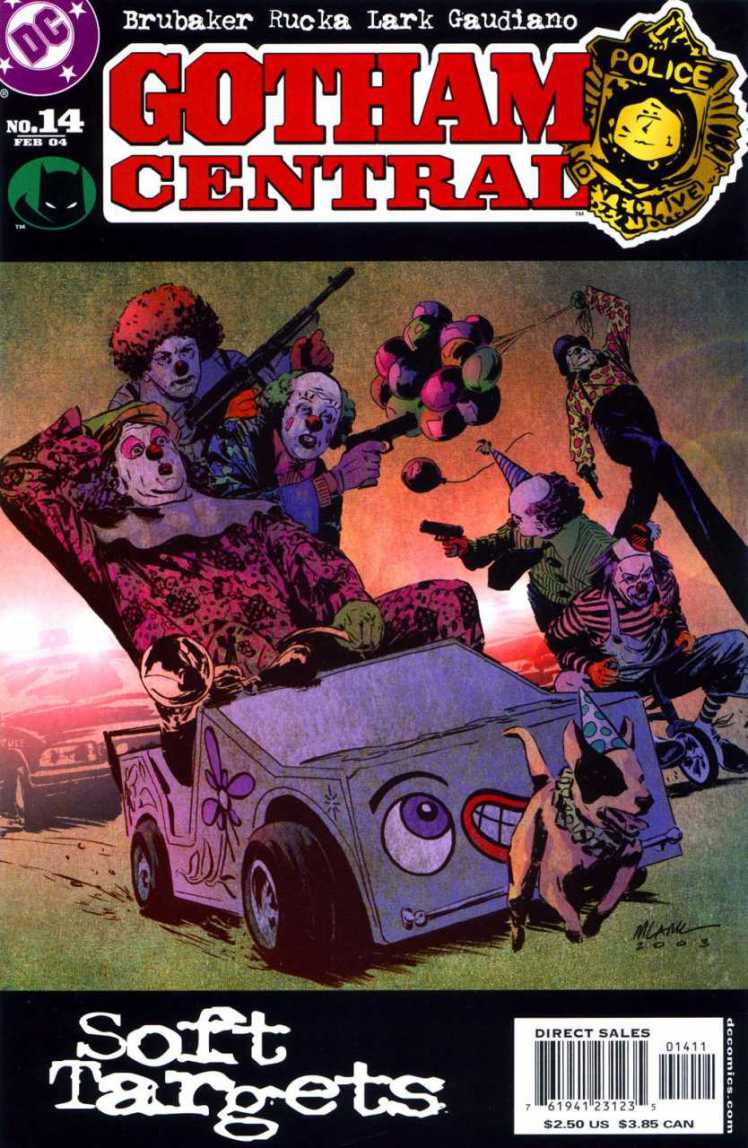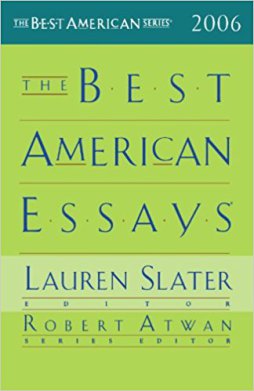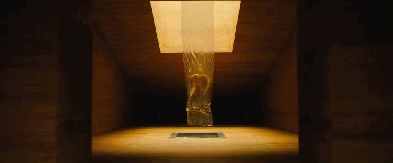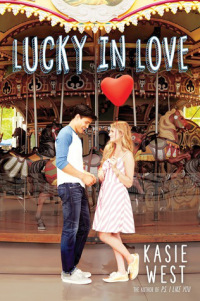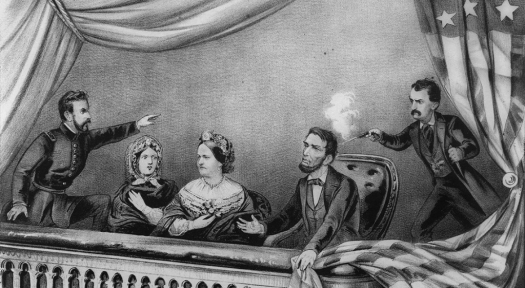 Greetings! My American readers: Happy Fourth of July! Today’s guest is a Brit living in America, so part of me wants to make a Seinfeld-esque attempt at observational humor, but the other part of me says, “Dotson, you’re no Seinfeld.” Barbara, we’re glad you’re here—both in the United States and in this latest edition of Tuesday Q&A.
Greetings! My American readers: Happy Fourth of July! Today’s guest is a Brit living in America, so part of me wants to make a Seinfeld-esque attempt at observational humor, but the other part of me says, “Dotson, you’re no Seinfeld.” Barbara, we’re glad you’re here—both in the United States and in this latest edition of Tuesday Q&A.
Barbara is a successful novelist, which takes dedication and self-discipline; maintains several gardens even though a humongous black snake often makes an appearance; advocates for OCD awareness; and has been a loving but firm source of support for her son with OCD. In short, she’s tough, and I love that. Parents of children with OCD—whether they’re little ones or young adults—read on.
Your young adult son has OCD. How did you realize that he might have OCD?
Such a great question because it took years to get a diagnosis and treatment. I learned the hard way that parents need to do their research and find a psychologist well versed in exposure and response prevention (ERP) therapy. With the gift of hindsight, I can trace my son’s anxiety back to when he was four, but he didn’t receive the help he needed until he was at least nine. Maybe ten.
He was a happy, well-balanced child who gradually started fussing over every detail: Did that cloud contain a tornado? Was the mold on a tree anthrax? I remember saying to my husband, “I feel as if I have to edit life for him.” I was concerned, but I’d never heard of OCD.
Around his fifth birthday, he developed stomach problems and headaches. His pediatrician worried he might be a celiac or have Crohn’s disease, and after a variety of invasive tests that came up negative, I took him to a holistic doctor. He said, “Watch his body language. Your son’s anxious.” Bingo. That was our first turning point.
Then his sleep patterns went to hell, and we consulted with a well-respected child psychologist. She mentioned OCD in passing and told me I had a great son. I did; I do. But she offered no real explanations for his obsessive behavior, and when I told her I helped him avoid situations that made him fearful, she congratulated me on being a good mother. No, I was being an enabler. Bad, bad mother!
Finally, after a family vacation left us in tatters, she threw up her hands and said, “Medicate!” and I refused. Instead, I did what I do as a writer: I turned to research, which is how I stumbled across the IOCDF website and learned that Dr. March’s clinic was down the road at Duke. (I really, really wish someone in the local medical field had shared that information with me.) I enrolled my son, and his second psychologist—who he still sees—was an instant fit for our family.
We did a year of intense exposure therapy, which I charted like a military campaign, but the progress was slow. When the psychologist suggested meds, I felt we had failed, but she explained drugs could lower the anxiety enough so that we could do more work. And she was right. Three years later my son was off meds and 95 percent OCD-free. Life was peachy…until the stress of college visits.
Since then, we’ve been on and off the OCD roller coaster. However, my son never lets OCD hold him back. A kid who was once terrified of flying opted for a university two plane rides away and recently graduated Phi Beta Kappa from Oberlin College. Not bad, huh? Some days are golden, some feel as if they will never end, but we’ve found acceptance as a family. That doesn’t mean we’ve quit; it means we understand that our son has a chronic illness, which needs managing.
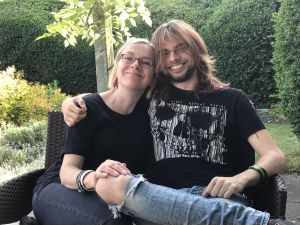
OCD is undoubtedly difficult for the person who has it, but it’s hard on loved ones as well. How did you work through the diagnosis and treatment as a family?
We learned to laugh hard and often, and I’m ridiculously tough for a 5’ 2” woman (my guys are both empathetic and sensitive. Emotional sponges, the pair of them). I became the family cheerleader and joined a local support group. The support group taught me that (a) I needed to be around other moms in the trenches with OCD, and (b) I was blessed to have a strong marriage. I watched every other marriage in that group fail—with one exception. When another member asked why I thought my family had survived, I replied, “Because I’m a stay-at-home mother with one child.” But later I realized it’s because my husband and I make a good team.
We also reached an agreement, early in our son’s therapy, that was essential to its success. We have very different parenting styles, and mixed signals are not an option when you’re battling OCD. As the primary parent, I took over our son’s treatment 100 percent, and my husband agreed to never countermand how I dealt with the OCD. When our son spiraled, I could focus on nothing other than the techniques his psychologist had taught us, but with the security of knowing my husband had my back if I couldn’t cope. One evening, for example, he was at a work dinner when I called and screamed, “I’m losing it.” He was home within half an hour.
I also learned to not beat myself up when I needed a break. A fried caregiver is a useless caregiver, and you have to pay attention to your own mental health. This probably explains why I have fourteen flowerbeds. (Gardening takes me to my happy place—even when I’m ranting about voles.)

It’s one thing to have a young child with OCD, but it must be quite another to have an adult child who’s trying to live his own life and is naturally separating from the care and oversight of his parent. How did you handle the transition between having your son at home with you and having him live on his own?
It was extremely difficult and equally tricky in reverse (our son is now transitioning back to life at home). When he was 10, 11, 12, I dragged him through exposure therapy with the knowledge I could manipulate him. Horrible confession, but true. Obviously, that’s not the case with a young adult, and I was thankful for every college semester he completed without mental collapse.
But before he left for college, we secured a safety net. Our son opted to stay with his local mental health team, so we set up a system for phone consults. We also made sure the on-campus clinic had our son’s files and arranged to meet with the director during parent orientation.
Communication as a family is key, so we set up weekly Skype chats that allowed us to hear/see/judge first-hand how he was doing. We also told him, from day one, “Even if it’s two in the morning, call if you need us.” And he often did.
Meanwhile, I kept educating myself about OCD and tried to stay alert for reassurance seeking. And failed. When I realized I’d slipped back into the role of enabler, Jon Hershfield’s When a Family Member Has OCD became my life raft. (Buy that book, y’all. Buy it now!)
I also think having a coach—even long distance—makes a world of difference. Therapy is heartbreaking and painful, but it does work. You can help your grown child navigate exposures if you’re willing to be the horrible person responsible for inflicting pain (by raising his anxiety in an exposure). My son and I did this throughout the month of January—with the support of his psychologist—and it make a world of difference to the last four months of college.
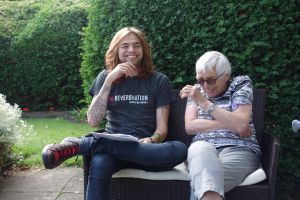
It must be so difficult to see your child in pain and struggling knowing that reassurance can actually impede the recovery process. What advice can you give other parents on navigating this fine line?
First off, hugs to any parent struggling with this. Dealing with OCD is counterintuitive to the most basic parenting instinct: offer reassurance, right? Wrong. If you need a reminder of why, read Jon’s book. When our son was in a bad place, we set a cap on the number of times he could check each day and then lowered it gradually. But this has to be done with your loved one’s approval. I can only repeat: therapy is hell for everyone. Go slowly.
I always start with the simple phrase: “You’re checking.” Also, I remind him of the obvious: Have you eaten today? Are you getting enough sleep? His anxiety spikes when he’s hunger or tired, which makes perfect sense.
To sum up: offer love and support, not judgment. And try to use gentle reminders that the techniques work—if your loved one uses them.
You’re an A2A Advocate. Tell us more about your efforts to spread awareness of OCD.
My efforts are never enough, but I try to support the IOCDF through random donations and social media, and I do whatever Jeff Bell of A2A asks of me. Fiction, however, is my main vehicle. I visit many book clubs, and those visits tend to become open therapy sessions. For me that’s key: I need to keep talking, keep sharing my story, keep reaching out to others. Living in the world of OCD can be isolating, and the knowledge that you’re not alone can make a world of difference. It did for me. There is no shame, and those of us who have acceptance can help those suffering in silence.
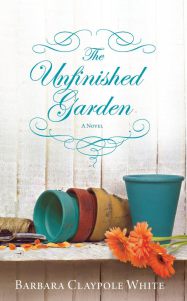
The Unfinished Garden, your first novel, centers around a character with OCD. What inspired you to write about OCD after having dealt with it in your own life?
I love James Nealy, my first hero, and I owe him everything. He set me on my path to writing hopeful family drama with a healthy dose of mental illness.
The story that would become The Unfinished Garden stared with a different hero. After my son emerged victorious from the first round of exposure therapy, James marched into my head and refused to leave. That’s the kind of guy my James is: persistent. I was also drawn to the idea of someone who’d kept the OCD at bay until something in his personal life re-triggered it, and he decided to fight back. (Ironically, my son’s OCD was in remission when I wrote the novel, but returned full force while I was launching it.)
Once I realized I couldn’t shake James, I tore the manuscript apart and rewrote it with James as the hero, but the story was still told exclusively from my heroine’s point of view. Then a famous agent told me James would never make it as a romantic hero. “He’s too dark,” she said. My British war mentality kicked in, and I thought, “Fine. I’ve got nothing to lose then, have I?”
I rewrote the manuscript again, giving James his own chapters. I took readers inside his head and let him talk about “the voice.” Once I’d finished, I landed the agent of my dreams, Nalini Akolekar. Nalini is my guardian angel. She gets that my family always come first, and she took The Perfect Son to Lake Union Publishing, where it became a Goodreads Choice Awards Nominee for best fiction 2015. In a category with Harper Lee. Squee!
I never ask my heroes: Are you too dark? Now I ask: Are you dark enough? James led directly to Felix Fitzwilliam of The Perfect Son. (Felix has undiagnosed obsessive-compulsive personality disorder.) And Felix led to Marianne Stokes in Echoes of Family. (Marianne is a successful music industry executive who happens to have bipolar disorder.)
Your next book features a mother with postpartum OCD. How did you decide on this character? Was there anything you learned in your research that surprised you?
Yes! The Promise Between Us, which comes out in January, returns to OCD. And it’s just been listed on Goodreads, so please pop over there and add it to your “want to read” shelf. What’s it about? I’ll let my real-life hero tell you:
If you leave your newborn child because you have unstoppable thoughts of harming her, are you a good mother or a terrible one? This dilemma is at the heart of Barbara Claypole White’s novel, a wrenching story of how one woman’s OCD has a ripple effect on those around her—including the people she tried hardest to protect. This is an eye-opening and realistic exploration of mental illness—a topic that greatly deserves to be front and center. — Jodi Picoult, NYT bestselling author of Small Great Things
I’ve always wanted to write more about OCD, and until I found Katie Mack, I had assumed that meant more James. Katie’s a metal artist who took her first welding class as an exposure. How did I find her? Through a heartbreaking incident in the OCD community.
A member of a private, online support group posted about her struggles with pedophile OCD, someone leaked her comments, and her employer fired her. That story haunted me for weeks, and it led me to postpartum OCD and an interview with the amazing Angie Alexander. The moment Angie referred to harm OCD as “the dirty underwear of the OCD world,” I knew I had found my new heroine.
The research was gut-wrenching, but I was fascinated to learn that postpartum OCD can also affect dads and grandparents. And some of the research taught me new coping techniques. My learning curve with OCD never ends…
If you could give just one piece of advice to someone with OCD, what would it be?
As a teenager, I had two specific OCD fears (although I only figured this out recently). I’m not sure why I never developed full-blown OCD, but I would guess it’s because my life has been one big exposure. Like my son, I chose to go far away for college, and every success I’ve achieved in life has come from moving way, way beyond my comfort zone. I can push myself hard because I’m wired that way, and I’m ridiculously good at positive thinking. However, I would never encourage someone struggling with severe OCD to stay in the boxing ring in the way I would. (Did I mention I’m not good at quitting?) When my son was younger, I often pushed too hard on exposures and had to learn that it’s okay to fail. Now when his OCD is loud, I remind my son that a temporary surrender is a chance to pull back and regroup. It’s not defeat. Even in the OCD world, bad days end and each new day brings hope. Never lose sight of that hope.
Advertisements Share this: